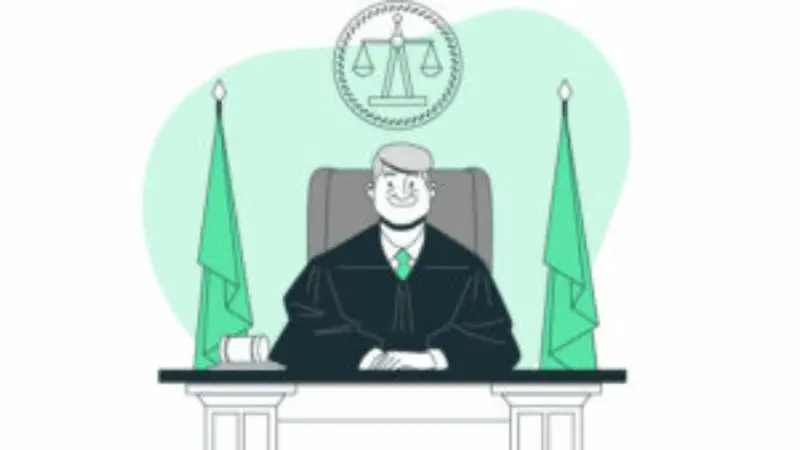
Bitcoin and States In Which Countries Is Bitcoin Legal and Which Is It Not?
Bitcoin has started a new era in the world with the use of Cryptocurrency, which has been used as a digital transaction since 2009. All countries in the world inevitably came face to face with cryptocurrencies that can be traded between people in the shortest time without intermediary institutions at the least cost. This confrontation forced countries to introduce some legal regulations or try to control them by establishing a control system. Bitcoin, which is generally welcomed positively in the world, has been negatively received for some countries and has led to bans. So why were bans introduced or what regulations were made in the countries where they were used legally?
It would be correct to talk about the structure of Bitcoin before explaining the positive or negative regulations of the countries. Bitcoin is not issued, approved or regulated by any central bank. Instead, it is created through the computer-generated technological process known as mining. In addition to being a cryptocurrency that has nothing to do with any government, bitcoin is a peer-to-peer payment system that does not exist in physical form.
Countries That Allow the Use of Bitcoin
Bitcoin was used in illegal transactions due to its decentralized structure and the fact that it did not have the personal information of the person making the transaction, but now the Blockchain network has started to move away from this situation because the trace is sustainable in terms of its structure. As countries that accept and regulate this;
United States
The U.S. Treasury Department’s Financial Crimes Enforcement Network (FinCEN) has been providing information about bitcoin since 2013, ensuring that investors have access to accurate information. The Treasury has defined bitcoin as a money services business. Thus, it is subject to the Bank Secrecy Act, which requires exchanges and payment processors to comply with certain responsibilities such as reporting, recording and record keeping.
Canada
Canada, which has a positive view of Bitcoin, controls Bitcoin as a state by trying to prevent money laundering with legal regulations. Canada is putting exchanges under anti-money laundering (AML) laws because it defines Bitcoin as a trading transaction and bitcoin exchanges as money service businesses. Bitcoin exchanges are required to register with the Canadian Financial Transactions and Reports Analysis Centre (FINTRAC), report suspicious transactions, adhere to compliance plans, and even keep certain records.
Australia
Australia, on the other hand, has a similar attitude to Canada, defining Bitcoin as the money service companies of exchanges, so the Australian Taxation Office (ATO) considers it an asset for capital gains tax purposes.
European Union
On October 22, 2015, the European Court of Justice (ECJ) ruled that the purchase and sale of digital currencies is considered a service supply and that it is exempt from value-added tax (VAT) in all European Union (EU) member states. Other states attached to the United States also evaluated it positively.
El Salvador
El Salvador, the first of its kind in the world, is the only country in the world that allows bitcoin as a legal means of payment. In June 2021, he approved President Nayib Bukele’s proposal to officially accept bitcoin as a form of payment.
As we said at the beginning of our article, other countries around the world that many countries look at Bitcoin positively are mainly;
- Japan
- England
- Americas
- Canada
- Malta
- Ukraine
- Switzerland
- Estonia
- Slovenia
- Hong Kong
- Georgia
- Singapore
- Germany
Countries That Do Not Allow the Use of Bitcoin
Although Bitcoin is welcomed positively in many countries, some countries are cautious because of its volatility, decentralized nature, perceived threat to existing monetary systems, and links to illegal activities such as money laundering. While some countries have banned the digital currency altogether, some countries have not yet made a regulation.
China
China is one of the countries that prohibit the use of Bitcoin and other crypto coins. All transactions have been banned in China, and the government continues to crack down on mining operations within the country’s borders.
Russia
Although the use is banned in Russia, which has a similar attitude to China, no legal regulation of Bitcoin has been introduced.
Viet Nam
The Vietnamese government and state bank are not regulated as an investment vehicle and argue that Bitcoin is not a legitimate payment method.
Even if there are not as many countries that look at Bitcoin positively, other countries that look at Bitcoin negatively;
- Afghanistan
- Pakistan
- Bangladesh
- Algeria
- Macedonia
- Saudi Arabia
- Qatar
- Viet Nam
- Vanuatu
- Bolivia
Countries that have not yet regulated the use of Bitcoin
Turkey is among the countries that have not yet imposed a restriction or legal regulation on Bitcoin and other crypto coins.
- Turkey
Turkey continues its research on Bitcoin and other crypto coins. For the crypto coins that continue to be used in Turkey, our government has reported that it will make arrangements in the near future.
Other countries that still haven’t edited
- Argentina
- Kenya
- Jordan
- Kazakhstan
- Malaysia
- Maldives
- Colombia
- Panama
- United Arab Emirates
- Tanzania
Bitcoin and other hedgehogs are inherently ushering in a new digital age on Earth. It is known that Bitcoin is still used even in countries where its use is banned. We have provided information about this new technology in all countries around the world, both about their sanctions and their support.